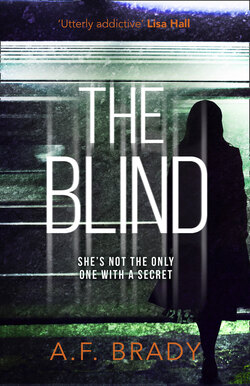Читать книгу The Blind - A.F. Brady - Страница 27
NOVEMBER 11TH, 8:36 A.M.
Оглавление“Good morning, Rachel,” I say with a sunshiny voice as I saunter through Rachel’s door and sit in her patient chair.
“Morning, Sam. You’re very chipper today.” She clears away a corner of her desk for me to put my files down so we can begin our supervision session. Rachel does very minimal supervision of the staff because she doesn’t have the time, and she is forced to believe that everyone is able to take care of themselves. There’s been a recent influx of new patients, and Rachel is preoccupied with placement and intakes, so she’s been putting off traditional supervision and replacing it with encouragement to call her if we have questions or problems.
“Chipper every morning,” I lie, swallowing my hangover heartburn. I put on my reading glasses and pull out Richard’s incomplete file. “So, I figured since we only have a short time together this morning, I should jump right into business.” Rachel nods, sips her coffee and swivels her chair to face me. She crosses her giant calves and waves me along. “Richard McHugh and I have been meeting weekly on Tuesdays at 11:00 a.m. There was a lot of speculation that he was uncooperative, but he always shows up to our sessions, and he’s always punctual. He seems to like the structure. Now, that being said, he is extremely uncooperative during the sessions. He is absolutely unwilling to complete the psychological assessments and gets very defensive and cagey when I try to pull any information out of him.”
“Do you feel safe in sessions with him?” Rachel asks.
“Sure. He isn’t threatening or violent, he’s just very quiet and guarded. I don’t imagine that he would hurt me. He seems to be protecting himself by staying quiet. He doesn’t like to share his story.”
“Have you been able to determine why he was in prison?”
“No. This is actually one of the other issues with his chart; there isn’t a lot of stuff in his continuation-of-care section. I have the names of the halfway houses he attended, but no contact number or contact person there, no sponsor or mentor. I have the names of the prisons he was in, and the dates he was there, but no further information. It’s all very unclear. There are some xeroxed pages with huge swaths of the page blacked out. There is no information about the charges, so there’s no way to know what he did to end up in prison. And he certainly hasn’t made any effort to tell me.”
Rachel nods. “I was the one who did his intake, actually, and I found the same thing. There was very little information available to us, but he was strangely insistent on coming here. He didn’t tell me much of anything at all, but he was polite, if standoffish. It’s a complete question mark. I got in touch with the teams at Revelations and Horizon House, the halfway houses, but they didn’t have anything on him. The staff turnover at those places is ridiculous, and they don’t seem to keep proper records.” She’s reaching around her desk and pulling at scraps of paper poking out of various in-boxes and out-boxes. She’s looking for something.
“Have you had patients like this before? I’m not entirely sure how best to proceed. He’s a giant question mark, like you said, so I don’t know how to properly place him in groups, and I’m not sure how to draw out the information we need to help him.” Rachel loves it when I ask her for advice.
“I’m looking for his original intake stuff. I gave him a blank sheet to write on when he refused to fill out the intake materials. I asked him about his goals for treatment and that kind of thing. I know he scribbled something down, but I can’t remember what it said.” She pushes her chair around the office, opening file drawers and checking inside a massive disorganized cabinet.
“For now, I’m just going to keep up our weekly sessions,” I reassure her, “keep him in some of the high-functioning, intellectual groups, and see if we can get him comfortable with me, and maybe then he’ll come out of his shell.” Rachel doesn’t seem to be listening to me anymore as she’s seeking this document.
“Here! Here it is,” she says, pulling a page with rolled corners from the back of a notebook. “See if this can be useful to you.”
I take the page from her hands and look over Richard’s handwriting. He was using a dull pencil and the lines of his cursive are blurry and uneven. He made a heading that says “Goals at Typhlos” and he filled in the section with bullet points: “To get better. To forgive. To reenter life.” He specifically writes Typhlos in various places on the sheet. He obviously wanted to come here in particular. There are several other sections, but the pencil lines have been smeared and I can’t read much. Under another heading called “Therapy,” he wrote something that looks like open up and something else that looks like Samantha.
